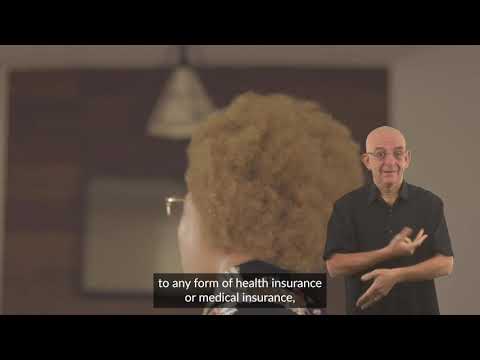Medical Assistance for Disabled Individuals
Contents
- Applying for medical assistance as a disabled individual
- What medical assistance is available for disabled individuals?
- How to appeal a decision regarding medical assistance for a disabled individual
- How to maintain medical assistance as a disabled individual
- What changes to my disability status may affect my medical assistance?
- How to report changes in my disability status to the medical assistance office
- What if I am no longer disabled but still need medical assistance?
- How to transfer my medical assistance to another state
- What if I move to another country and need medical assistance?
- How to get medical assistance as a disabled individual living abroad
If you are disabled and need medical assistance there are a few different options available to you. Learn about the different programs and how to get started.
Checkout this video:
Applying for medical assistance as a disabled individual
If you are a disabled individual, you may be able to get medical assistance through government programs such as Medicaid or Medicare. These programs provide health care coverage for people with low incomes or who have certain disabilities.
To see if you qualify for medical assistance, you will need to fill out an application and provide some information about your income and assets. You may also need to provide proof of your disability, such as a doctor’s note or disability benefits award letter.
Once you have submitted your application, a case worker will review it to see if you meet the eligibility requirements. If you do, they will contact you to schedule an appointment for an in-person interview. Once the interview is complete, the case worker will make a determination about your eligibility for medical assistance.
What medical assistance is available for disabled individuals?
There are a variety of medical assistance programs available for disabled individuals. These programs can help cover the costs of medical care, equipment, and other necessary services. Some programs are run by the federal government, while others are administered by state or local agencies.
The Social Security Administration (SSA) provides two main programs that can assist disabled individuals with the costs of medical care: Social Security Disability Insurance (SSDI) and Supplemental Security Income (SSI). SSDI is a program for workers who have become disabled and are unable to work. SSI is a program for disabled individuals who have limited income and resources.
Medicare is a federal health insurance program that covers disabled individuals who are 65 years of age or older, or who have certain disabilities. Medicaid is a joint federal-state program that provides health coverage for low-income individuals, including those with disabilities. Medicaid programs vary from state to state, so it is important to check with your state’s Medicaid office to see what coverage is available in your area.
There are also a number of private insurance companies that offer health coverage for disabled individuals. These plans may be purchased through the Health Insurance Marketplace or directly from an insurance company.
How to appeal a decision regarding medical assistance for a disabled individual
If you are a disabled individual who is seeking medical assistance, you may find yourself in a situation where you need to appeal a decision made by your medical assistance provider. Whether you are seeking coverage for specific medical treatments or services, or you are appealing a denial of coverage, the appeals process can be complex. However, there are some steps that you can take to ensure that your appeal is successful.
The first step is to contact your medical assistance provider and request a written explanation of the decision that was made regarding your coverage. This explanation should include the specific reasons why your request for coverage was denied. Once you have this explanation, you will be able to more effectively prepare your appeal.
Next, you will need to gather evidence to support your appeal. This evidence can take many forms, but it should all be focused on demonstrating why you believe that you should receive coverage for the medical treatment or service in question. For example, if you are appealing a denial of coverage for a specific medication, you might provide evidence such as medical records showing that the medication is necessary for your health and well-being.
Once you have gathered all of the necessary evidence, you will need to submit your appeal to your medical assistance provider. In most cases, you will need to submit your appeal in writing; however, some providers may also allow appeals to be made over the phone or in person. Be sure to follow any instructions provided by your provider regarding how to properly submit your appeal.
After receiving your appeal, your medical assistance provider will review the evidence that you have submitted and make a determination regarding whether or not they will reverse their decision and provide coverage for the treatment or service in question. In some cases, appeals may be denied outright; however, in other cases, appeals may result in partial coverage being provided or negotiations taking place between the provider and the individual regarding coverage.
How to maintain medical assistance as a disabled individual
It is important for disabled individuals to maintain their medical assistance in order to receive the care and treatment they need. There are a few things that disabled individuals can do to make sure their medical assistance is maintained:
-Keep up with medical appointments and treatments.
-Comply with the terms of their medical assistance plan.
-Work with their doctor to develop a care plan that meets their needs.
-Keep track of their medical expenses.
If a disabled individual is having trouble maintaining their medical assistance, they should reach out to their doctor or case worker for help.
What changes to my disability status may affect my medical assistance?
There are several changes that could affect your medical assistance, including changes to your:
-Physical condition
-Mental condition
-Income
-Assets
-Living situation
If you have a change in any of these areas, it’s important to let your state’s medical assistance office know as soon as possible. This way, they can determine if you’re still eligible for medical assistance and make any necessary changes to your coverage.
How to report changes in my disability status to the medical assistance office
If your health condition has changed so that you are now able to work, or can work more hours, you must report this change to the medical assistance office. You may do this by:
-Visiting the office in person
-Calling the office
-Sending a letter to the office
What if I am no longer disabled but still need medical assistance?
If you are no longer disabled but still need medical assistance, you may be able to continue receiving benefits through a medical waiver. A medical waiver allows you to continue receiving benefits even if you are no longer disabled, as long as you meet certain medical criteria. To be eligible for a medical waiver, you must be:
-Able to show that you are still medically disabled and need assistance in order to live independently;
-Unable to work due to your disability; and
-unable to afford private health insurance
If you think you may be eligible for a medical waiver, please contact your local social security office or the disability office of your state’s department of human services.
How to transfer my medical assistance to another state
If you are currently receiving medical assistance in one state but wish to move to another, you will need to transfer your benefits. You can do this by contacting your current state’s medical assistance office and asking for a transfer form. Once you have the form, fill it out and send it back to the new state’s medical assistance office.
What if I move to another country and need medical assistance?
There is no one-size-fits-all answer to this question, as the medical assistance available for disabled individuals may vary significantly from one country to another. However, there are a few general things to keep in mind if you are considering moving to another country and need medical assistance.
First, it is important to research the medical assistance program in your new country of residence. This research can be done online or by contacting the embassy or consulate of your new country of residence. Additionally, it may be helpful to contact organizations that provide assistance to disabled individuals in your new country of residence.
Second, it is important to be aware that you may need to obtain a visa in order to receive medical assistance in your new country of residence. For more information on visas, please contact the embassy or consulate of your new country of residence.
Third, it is important to note that the level of medical assistance available for disabled individuals may be different than what you are used to in your home country. For example, some countries may only provide basic health care services, while others may offer more comprehensive coverage. It is important to be aware of these differences and make sure that you will be able to access the level of care you need in your new country of residence.
Fourth, it is important to remember that you may need to make some adjustments when moving to another country and need medical assistance. For example, you may need to learn how to use a new medical system or adapt to a new culture. This transition can be difficult, but there are many resources available to help you make this transition successfully.
How to get medical assistance as a disabled individual living abroad
If you’re a disabled individual living abroad, you may be wondering how to get medical assistance. While the process can vary depending on your country of residence, there are a few general steps you can take to get the help you need.
First, contact your local embassy or consulate to see if they can provide any assistance. They may be able to help you find medical care in your area or connect you with resources back home.
Next, reach out to any disability organizations in your country of residence. They may be able to help you find the medical assistance you need or put you in touch with other disabled individuals who can offer support and advice.
Finally, don’t forget to check with your health insurance provider. Many insurance providers offer coverage for medical care abroad, so it’s worth reaching out to them to see what options are available to you.
With a little bit of research and effort, you should be able to find the medical assistance you need as a disabled individual living abroad.






